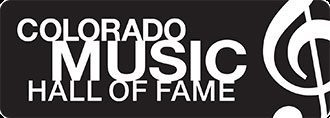Firefall
Singer-songwriter Rick Roberts and guitarist Jock Bartley founded Firefall in the summer of 1974. Roberts had served as a spark for the Flying Burrito Brothers from 1970 to 1972, after Gram Parsons left the band.
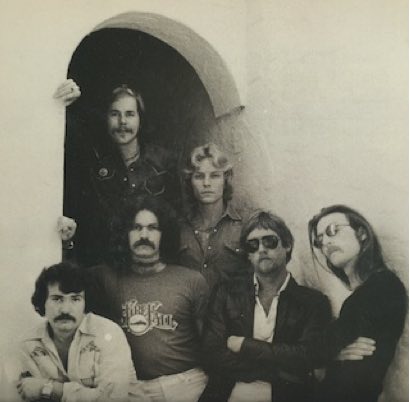

With a few band stints around the Denver/Boulder area under his belt, Bartley took over the lead guitar post of Tommy Bolin in Zephyr in 1971. The following year, he switched over to Parsons’s band, the Fallen Angels (which also featured Emmylou Harris), and met Roberts, whose touring schedule with the Burritos often overlapped with that of Parsons. Mark Andes, the founding bassist of the bands Spirit and Jo Jo Gunne, joined with Bartley and Roberts, who began an informal series of jam sessions at his home in Boulder. Roberts thought of a fourth participant he’d met in Washington, D. C.—singer-songwriter Larry Burnett. At Chris Hillman’s suggestion, they added drummer Michael Clarke, an original member of the Byrds and the Flying Burrito Brothers.
The break came when Roberts, Bartley and Andes toured as Hillman’s backup band. Hillman fell ill during a date at the Other End in New York, and the club owner accepted a proposal to bring Burnett and Clarke into town. Firefall finished out the engagement, and Atlantic Records was sold on the band.
By January 1976, the group had completed recording a debut album with producer Jim Mason, who blended Firefall’s acoustic guitars, mellow pop melodies and vocal harmonies.
A sixth member, David Muse, joined the ranks on keyboards, synthesizers, flute, tenor sax and harmonica.
Firefall reached platinum status, and the singles ”You Are the Woman,” “Livin’ Ain’t Livin’” and “Cinderella” together sold in excess of a million copies. The group notched more hits—”Just Remember I Love You” and “Strange Way”—and two more best-selling albums, Luna Sea and Elan, in the late 1970s. That heady time culminated in an opening slot for Fleetwood Mac’s Rumours tour in 1977, including a hometown Folsom Field gig before 61,500 Coloradans. Lineup changes followed, and the band ran out of chart momentum.
Manassas
Searching for some peace from Crosby, Stills, Nash & Young in 1970, Stephen Stills would fly by Lear jet to decompress at his cabin near Gold Hill in Boulder County. He posed there for the cover photo of his first solo album on September 20, 1970, the morning after he received the news of the death of his friend Jimi Hendrix.
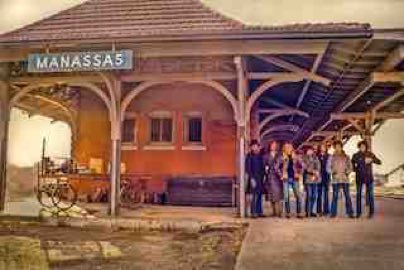

Stills had been visualizing a group that would bring together rock, folk, Latin, country and blues. He also retained several members of his touring band—Dallas Taylor on drums, bass player Fuzzy Samuels, keyboardist Paul Harris and percussionist Joe Lala. When the Stills-Burritos amalgam—dubbed Manassas—congregated in the studio, something clicked. The 1972 debut double LP Manassas, featuring the singles “It Doesn’t Matter” and “Rock & Roll Crazies,” peaked at No. 4 on the charts. On stage, Manassas gained fame for its nearly three-hour shows that started with an opening rock set, followed by Stills playing solo acoustic, Hillman and Perkins playing bluegrass, and the band then returning for country, more rock and an acoustic finish.
Nitty Gritty Dirt Band
Coming out of the fluid California scene of the late 1960s, the Nitty Gritty Dirt Band hit upon a unique Americana style. The combination of Jeff Hanna and Jimmy Ibbotson’s acoustic guitars and brother-like harmonies with John McEuen’s string wizardry, Jimmie Fadden’s utilitarian prowess and Les Thompson’s mandolin created the sound, and at shows at Denver’s Marvelous Marv’s nightclub in early 1970, the band played to enthusiastic crowds.
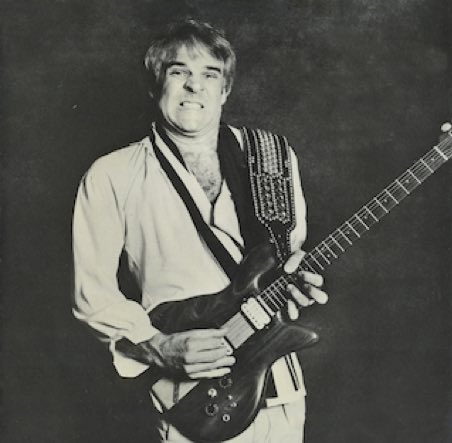

The two musicians consented to take part in recording a selection of traditional country numbers, with the band allowing the spotlight to fall on the old masters who had greatly influenced them. The resulting album, Will the Circle Be Unbroken—an unprecedented, groundbreaking three-LP set, recorded two-track live, with no mixing or overdubs—elicited appreciation from both rock and country listeners. It even earned a gold album, the first for Scruggs, Watson, Maybelle Carter, Jimmy Martin, Roy Acuff and others.
Circle was ultimately inducted into the Library of Congress as “one of America’s most important recordings.”
In 1977, the Nitty Gritty Dirt Band became the first American group selected by the Soviet government to tour the USSR. The band spent a month in Russia, Armenia, Georgia and Latvia playing to sold-out audiences, with an estimated 145 million people tuning in to the group’s one-hour performance on Moscow television. The following years saw members come and go. Bob Carpenter, based in Aspen with the band Starwood, became an invaluable addition on keyboards and vocals. The back-to-back hits “Make a Little Magic” and “An American Dream” with Linda Ronstadt were released under the name the Dirt Band.
Poco
Rusty Young got his musical start in Böenzee Cryque, a Denver-based band that recorded for Uni Records. The double-sided 45 “Still in Love With You Baby” backed with “Sky Gone Gray” went to No. 1 on the hit list of KIMN, Denver’s dominant Top 40 station, in April 1967. On the West Coast, Richie Furay had formed Buffalo Springfield with Stephen Stills and Neil Young.
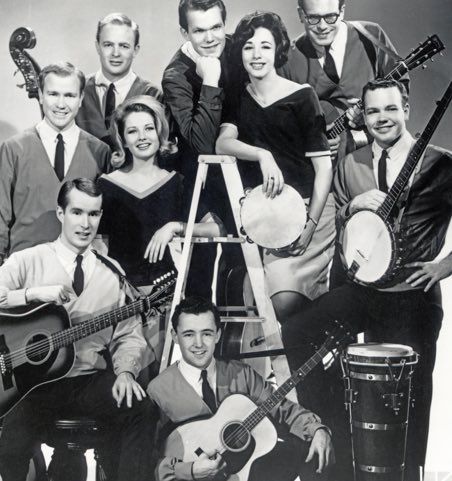

In 1968, with Springfield in disarray, Furay and guitarist Jim Messina quickly set about assembling a band of their own. They recruited Young, who called in two buddies from Colorado—drummer George Grantham, also from Böenzee Cryque, and bassist Randy Meisner, who came from a rival band, the Poor. Poco’s Pickin’ Up the Pieces album debuted in 1969, blending sweet country harmonies with a driving rock beat. Then Meisner left and later co-founded the Eagles, and Messina slipped into the band’s bass slot until Timothy B. Schmit signed. After Messina split to form a duo with Kenny Loggins, former Illinois Steam Press guitarist Paul Cotton stepped in. Poco made its reputation as an exciting live act, playing hopeful, optimistic music. The 1971 live album, Deliverin’, was its biggest seller of the era.
In 1971, the bandmembers moved to Colorado.
While walking down a road to his house near Nederland, Furay wrote one of Poco’s most distinctive compositions—1973’s “A Good Feeling to Know,” with the lyrics “Colorado mountains I can see your distant sky.” Frustrated when the crowd-pleasing track failed to generate the expected commercial success, Furay departed the band.
Poco plugged on, recording such classics as Schmit’s “Keep On Tryin’,” Young’s “Rose of Cimarron” and Cotton’s “Indian Summer.” When Meisner left the Eagles, Schmit quit Poco to take his place; Grantham left to live and work in Nashville. With Legend, Poco’s 12th studio album, Young and Cotton cracked the top of the charts. Young wrote and sang on the surprise hit “Crazy Love.” Cotton’s “Heart of the Night” was a second Top 20 hit. Young orchestrated a Poco reunion of the five original members in 1989; Legacy contained the Top 20 hit “Call It Love” and earned a gold record. The team of Young and Cotton carried on until 2010. Young, the Colorado native, has remained the only member who has performed at every Poco gig and played on every Poco recording since the band’s inception.
Do you love and appreciate the history of music? Head over to the Colorado Music Hall of Fame, where you get to learn and enjoy the rich history of music in Colorado.
